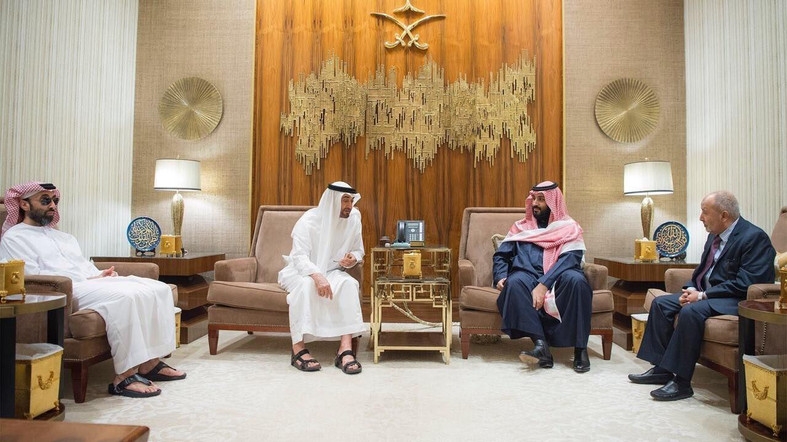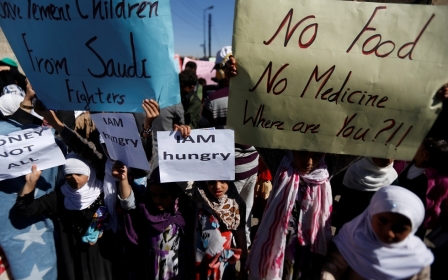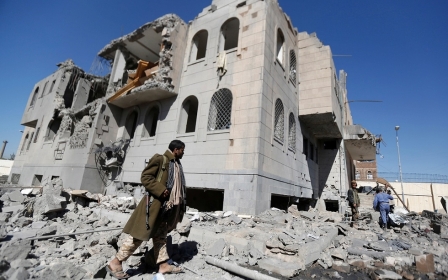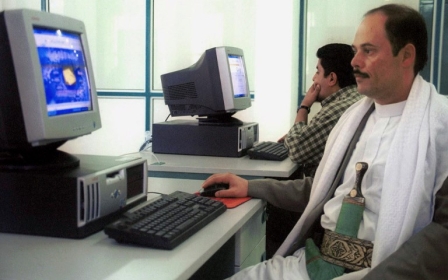Saudi Arabia, UAE hold talks with Yemen's Islah Party

Saudi Arabia and the United Arab Emirates held rare talks with Yemen’s Muslim Brotherhood-linked Islah Party in Riyadh on Wednesday.
Saudi Crown Prince Mohammed bin Salman and his Abu Dhabi counterpart Mohammed bin Zayed received the party’s chairman Mohammed Abdullah al-Yidoumi, and secretary general Abdulwahab Ahmad al-Anisi, the official Saudi Press Agency reported.
It was an opportunity to “review the situation in Yemen and efforts to restore security and stability for the Yemeni people,” SPA said.
Describing the meeting as “fruitful and positive”, Yidoumi told local media: “The Islah’s relationship with Saudi Arabia and the UAE is an extension of the brotherly relationship between the Gulf states, peoples and governments, and Yemen, in all its social and political components.”
He also went on to praise the “historic role” of both Gulf powers and expressed his “deepest gratitude and appreciation for the Saudi-led Arab coalition, Saudi Crown Prince Mohammed Bin Salman and Emirati Crown Prince Mohammed bin Zayed in their tremendous efforts to support and aid the Yemeni people.”
Since 2014, a rebel alliance of Iran-allied Houthi militias and forces loyal to former president Ali Abdullah Saleh have fought the government of President Abd Rabbuh Mansour Hadi for control of the impoverished country.
A Saudi-led military coalition intervened in Yemen in support of the Hadi government in March 2015.
The UN has described Yemen as the world's number one humanitarian crisis.
More than 10,000 people have been killed in the conflict and around 58,600 others have been wounded, many of them civilians.
'The Islah’s relationship with Saudi Arabia and the UAE is an extension of the brotherly relationship between the Gulf states, peoples and governments, and Yemen, in all its social and political components'
- Mohammed Abdullah al-Yidoumi, Islah Party chairman
Islah was long a major military and political force in Yemen but its forces pulled back from the capital and the rest of the north as the rebels took control and are now largely confined to Maarib province, east of Sanaa.
The movement is nominally part of the alliance supporting Hadi but so far it has played a relatively minor part in the actual fighting against the Houthi rebels.
Saudi Arabia has not cut off all contact with parties linked to the Brotherhood, but the UAE had previously pursued a policy of “zero tolerance” toward Islah, considered close to arch-rival Qatar.
Saudi Arabia, the UAE, Bahrain and Egypt cut off all diplomatic and economic ties with Qatar in June, mainly over Doha’s links to the Brotherhood.
International observers have pointed towards the failure of the two governments to push back the Houthi rebels in Yemen, especially after their erstwhile ally, former president Saleh, was killed earlier this month.
They say the move by the UAE and Saudi Arabia to engage the Islah party, despite its links with the Muslim Brotherhood, points towards a review of their military strategy in Yemen.
Translation: This meeting, which for the first time brought together Saudi Crown Prince Mohamed bin Salman, Bin Zayed and the leadership of the Yemeni Islah Party in Riyadh, was only made possible due to the shared interests between the UAE and Islah in Yemen.
New MEE newsletter: Jerusalem Dispatch
Sign up to get the latest insights and analysis on Israel-Palestine, alongside Turkey Unpacked and other MEE newsletters
Middle East Eye delivers independent and unrivalled coverage and analysis of the Middle East, North Africa and beyond. To learn more about republishing this content and the associated fees, please fill out this form. More about MEE can be found here.




